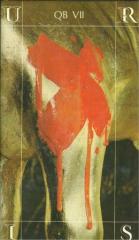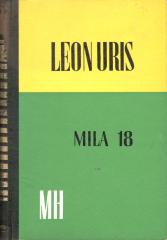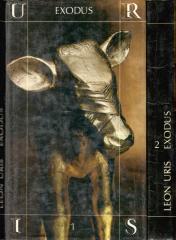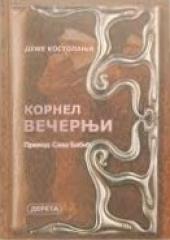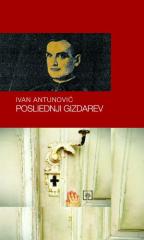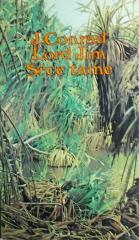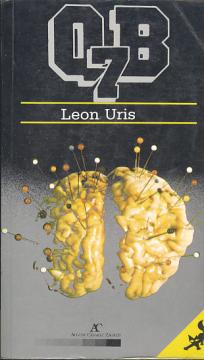
QB 7
Leon Uris, an American writer of Jewish origin, published the novel "QB VII" (The King's Bench, Courtroom No. 7) in 1970, a dramatic courtroom thriller that explores the traumas of the Holocaust, guilt, and justice, through a story of slander and a haunti
Priča se odvija u četiri dela. Prvi deo prati Abrahama Kejdija, uspešnog pisca i preživelog Holokausta, koji otkriva da je nacistički koncentracioni logor Jadviga bio mesto gde su njegova porodica i milion Jevreja brutalno ubijeni. Kejdi piše knjigu „Holokaust“ u kojoj optužuje čuvenog engleskog hirurga, ser Adama Kelna, da je bio sadistički nacistički lekar u logoru. Kelno, poljski plemić koji je emigrirao u Britaniju, navodno je izvodio okrutne medicinske eksperimente na zatvorenicima, uključujući sterilizacije i vivesekcije, pod rukovodstvom SS-a.
Drugi deo otkriva Kelnovu pozadinu: Rođen kao Tadeuš Borkman u Poljskoj, Kelno je preživeo samo ubistvo i gladovanje u koncentracionom logoru Jadviga, primoran da počini strašna dela kako bi spasao svoj život i život svoje porodice. Tvrdi da je pokušavao da spase zatvorenike, ali Kejdijeve optužbe ga uništavaju - gubi pacijente, prijatelje i ugled. Besan, Kelno tuži Kejdija za klevetu na britanskom sudu, u sudnici VII kraljičine klupe (QB VII).
The third part, the heart of the novel, is an intense court battle in London. Cady's lawyer, the insidious American lawyer Kirkland, brings in witnesses from the Holocaust: Jewish survivors, partisans and even Nazi documents. The gruesome truths about the camp are revealed - Kelno was really involved in the crimes, but the court must prove that Cady's book is fake. Kelno defends himself with dignity, but testimonies belie his facade: he was an "angel of grace" for some, but a demon for others. The courtroom becomes an arena for the clash of two worlds - the victims and the accused.
In the fourth part, after the verdict, Kelno receives only a halfpenny in compensation - a symbolic punishment, because his crimes are so terrible that the book did not further damage his name. Cady wins morally, but loses friends and faith in justice. The novel ends with a reflection on the incurable wounds of war.
Uris masterfully blends history, psychology and suspense, inspired by real events such as the Eichmann trial. "QB VII" is not just a story about the Holocaust, but about how the past shapes identity and the search for truth at all costs.
One copy is available
